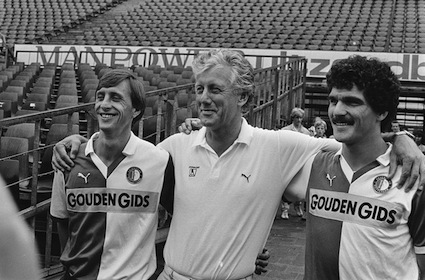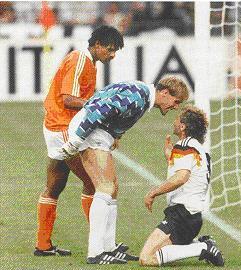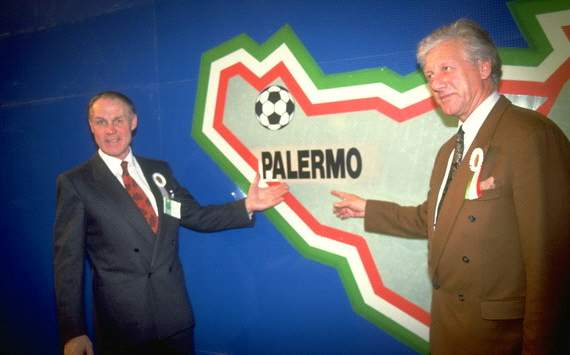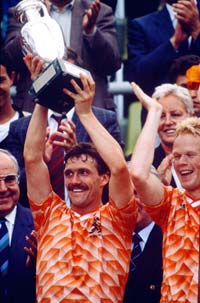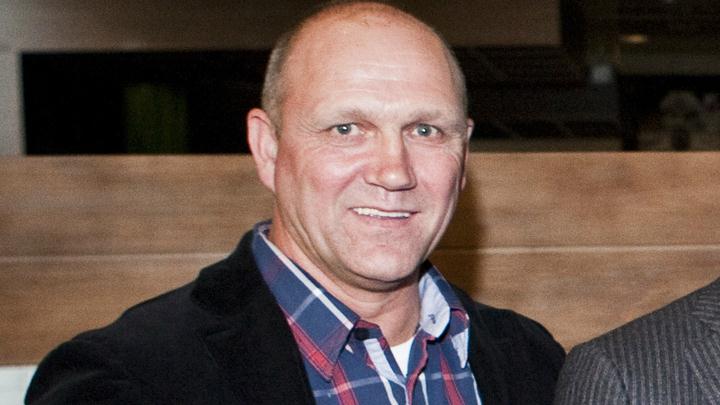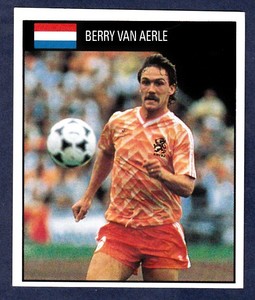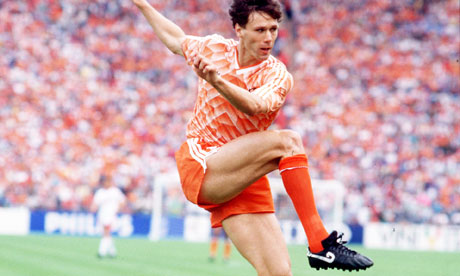My friends, another post in this dreary non-football period… Health is more important now, but it’s good to see the virus more and more under control and football returning to the stadiums… Albeit empty ones…
This Covid-19 situation has hurt people individually, but also society as a whole with potentially more fatalities as a result of all that…
Your fave blog also felt it. Way less interest in the non-current stories, I suppose while the annual bills (hosting, site, etc) keep on coming in. So… some help, some beer money would be highly appreciated :-). You know where to find the donation button!
And now this message from our sponsor ends, and we look at that question that was asked here before. Why did JC, the greatest coach we ever had, the man who had the most impact on Dutch football, on Ajax and on Barcelona… why wasn’t he ever given the role? Why did the KNVB not beg for him to come on board. Here is why…
JC was never overly popular with management types at the Dutch federation. As a player, he was the one who harassed the federation mostly about players’ insurance, about fair pay for the internationals, etc and at Ajax he had lost his job for being difficult to work with. JC was known to want to be the boss. He gets to say how he wants it. And typically, the KNVB wasn’t too happy with the long-haired beatnik.
Thijs Libregts hears he’s fired and won’t coach Holland at the World Cup
When Michels took Oranje and led them to their first and only prize in 1988, the Dutch federation hired Thijs Libregts, former Feyenoord coach, as the NT manager. He was an able player in his days, mainly for Excelsior. He had coached with success at club level but didn’t cut it as NT manager. He wasn’t an innovator, he didn’t bring anything to the – by then – mature top players we had. Don’t forget, by then, the Dutch players are all considered top class in their particular skills. The Milan 3, Koeman, Van Breukelen, Van Tiggelen, Vanenburg, Kieft… all seasoned by now and in need of a coach who would impress them and who can teach them something and discipline them when needed… A strong coach.
When Libregts reached the pinnacle of his shenanigans by saying racist and derogatory things about Gullit in the media, the players had enough. They took the initiative to go to the Federation and say: “Either he goes, or we quit!”
The KNVB, with former coach Rinus Michels as director, decided to sacrifice Libregts and to offer the players a vote for their ideal coach. It was between Leo Beenhakker, Aad de Mos and Johan Cruyff. Don Leo had coached Real Madrid before and was now coach of Ajax. Aad de Mos was a former coach of Ajax, now with Anderlecht (and successful with KV Mechelen before, with Erwin Koeman, among others).
The majority of the players – among them the Milan 3 and Koeman, Van ‘t Schip, Blind, Menzo, Witschge, Wouters, Roy – voted for Cruyff. No surprise. Some players selected Aad De Mos (Erwin Koeman, Adri van Tiggelen)… Basically the players who worked with him but never with Cruyff. And a small contingent picked Leo Beenhakker. Most likely players who had a clash with JC before (Vanenburg) or who expected not to play under Cruyff…
San Marco’s body language tells the story… No Cruyff…
The majority of the players wanted Cruyff. With good reason.
The KNVB took their input, and Rinus Michels was to do the final selection process and came home with… his friend Leo Beenhakker. The players were flabbergasted! Even the ones who voted for Don Leo…
Michels and Cruyff were at each other’s throats at the time. The big rumour is that Michels feared Cruyff would win the World Cup and become Oranje’s most successful NT coach. Only 2 years after Rinus big trophy. Michels even said in a press interview that “coach Cruyff is a psychopath”… Rinus blocked the JC appointment. And this resulted in a huge upset.
Captain Gullit felt screwed over the most, as he led the charge against Libregts and saw his plan thwarted. It broke something and the feud went from JC and Michels to Gullit and Michels. Michels wrote columns for the one daily newspaper, and Gullit started to write columns for the rival daily newspaper and they took their battle public.
The second mistake the KNVB made, was to organise a pre-World Cup camp and with the WC in Italy, there were numerous amazing opportunities to find a nice resort for the lads. Something close to a beach? To a nice town? Golf courses? But the KNVB found an old castle in former Yugoslavia, with a moat!, and locked the players up there. It was cold, it was dark, it lacked entertainment… Don’t forget, these were top class players by then. Mature, experienced, leadership… And they didn’t like where they were but had to accept it. But something broke.
Don Leo and Ruud Gullit bickering
Gullit was busy getting his numerous girlfriends from Milan to come to the castle. Van Basten and Rijkaard pulled away from it all. And that vacuum of leadership allowed for the second tier of players to start to become more vocal, which disrupted the hierarchy.
The rest is history. Leo Beenhakker suddenly appearing at press conference with a thick and bloody bump on this forehead. “I bumped my head to the door post”. But players slowly released the story that Marco van Basten threw an ashtray to Don Leo’s head. Assistant coach Nol de Ruiter appeared at breakfast with a black eye. No one knows what happened, but Nol and Leo didn’t see eye to eye, so…
When Beenhakker was asked after the tournament what the F happened? He famously answered: “75% of what happened will never see the light of day.”
Marco and Ruud actually almost decided to leave the camp and forget about it all. The first two group matches were dramatic. No leadership, no work rate, no team play, no hunger.
Oranje played Egypt in their first match. Beenhakker played almost the same starting eleven as Michels did in his first 1988 match at the Euros. Graeme Rutjes was brought in for Arnold Muhren basically. Kieft scored the first, in a dreadful match. With Egypt equalising from the spot, late in the game.
The second game was vs England, ending in a bloodless 0-0. Beenhakker made some changes, taking Rutjes out, brining Van ‘t Schip in midfield and Hans Gillhaus for Erwin Koeman. Kieft came in from the bench again.
After those two games, something broke. The players demanded a talk with the coach and issues were aired out. The third match was against the Republic of Ireland and Oranje needed one point to move on. Beenhakker used Richard Witschge in midfield for Van ‘t Schip. Oranje played with the shackles off, and Captain Gullit showed up, scoring the first goal. Ireland equalised late in the match, giving a third draw to the Dutch.
After the group round, the Dutch were up against West Germany, our favorite opponent and finally Holland played to their strength. Beenhakker was convinced by the players to use more creative options in midfield, so both Richard Witschge and John van ‘t Schip were brought in for a 4-4-2 with Marco and Ruud up front together. We lost that game, but we could have won that too… We played ok and got some chances we simply didn’t take. The match was most famous, sadly, due to the red cards Voller and Rijkaard received in the 22nd minute already, thanks to a spitting contest.
Nol de Ruiter’s biography goes into the Beenhakker situation and the whole vibe at that WC1990 campaign. De Ruiter: “Leo was really focused on his PR image. He didn’t want to be a stern coach, he wanted to be friends with the top guys. Leo is completely media focused. And you could see that in all the Ajax players too. Arrogant, rude even. Only Jan Wouters behaved normal. Leo did odd things, he would shorten practices or tactical talks, just to please the players. There was no discipline and I was there as a token assistant coach. I didn’t have anything to do. We had comedian Freek de Jonge living with us in the players’ hotel and he was a total distraction. Why? Doctor Frits Kessel was like an old woman and gossiping all the time. Gullit was hunting for women, Rijkaard was completely unmotivated, Koeman was kilos to heavy. It was a mess.”

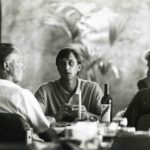
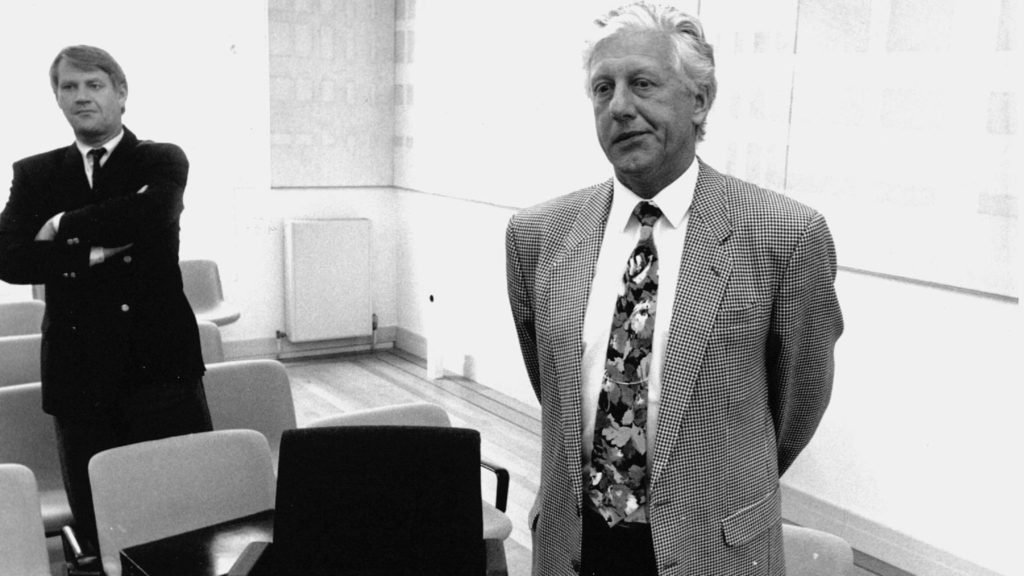
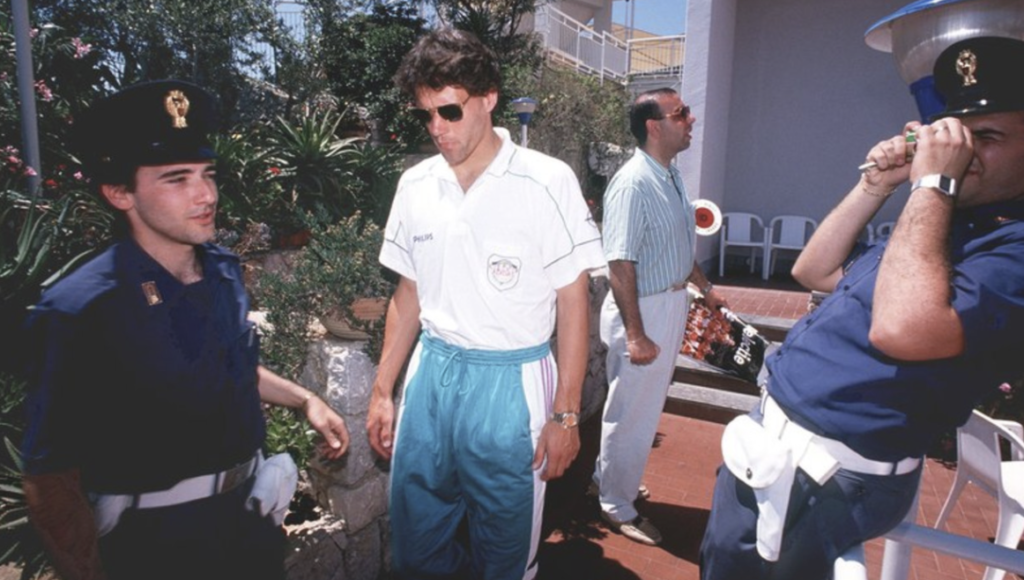
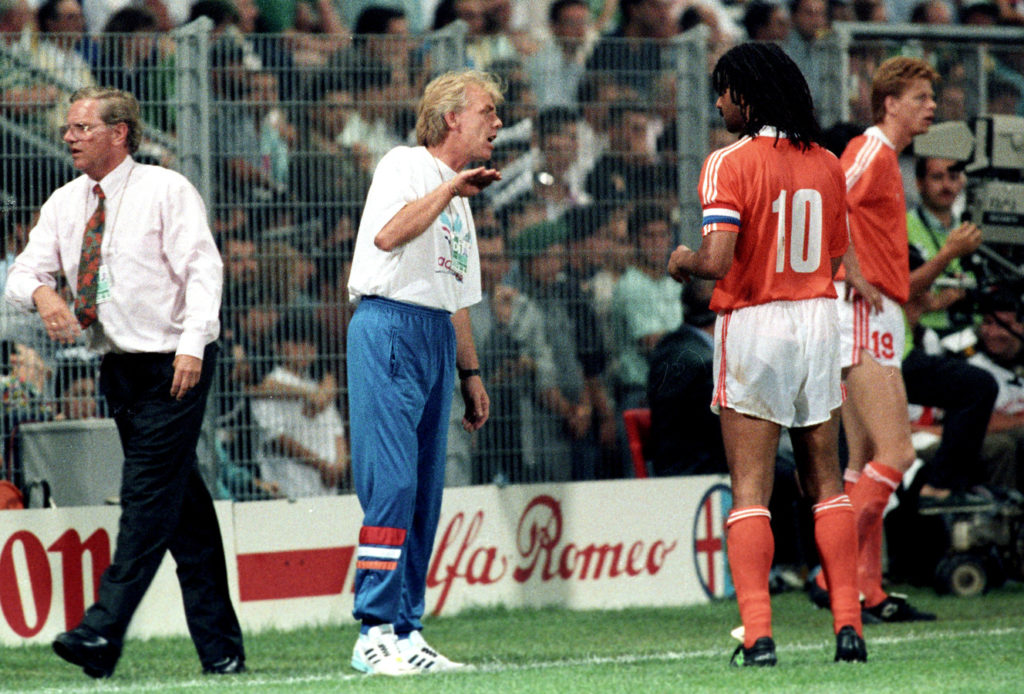
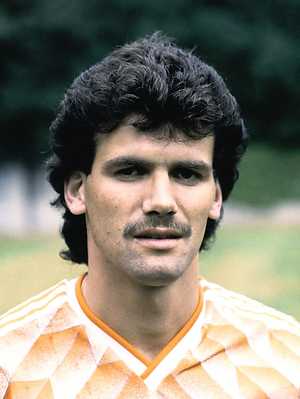
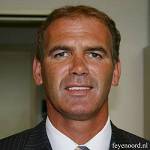
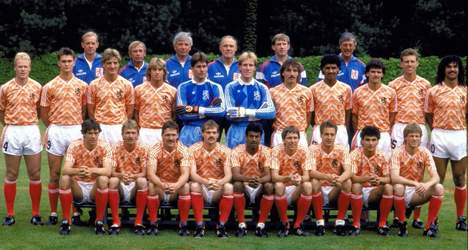
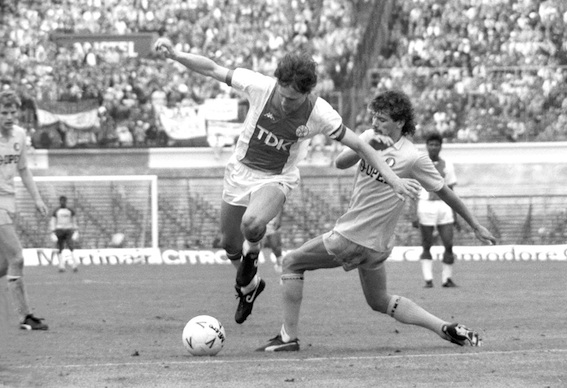 Football ballet between Van Basten and Troost, smoke partners…
Football ballet between Van Basten and Troost, smoke partners…